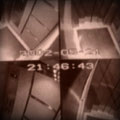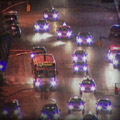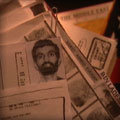 | |||||||||
   | |||||||||
|
New Yorker writer Lawrence Wright's January 2002 article on John O'Neill's life, FBI career and obsession with the growing threat of Al Qaeda. It focuses, in part, on the problems O'Neill faced in investigating Al Qaeda's attack on the USS Cole in October 2000. | |||||||||
|
Another profile of O'Neill written by Robert Kolker for New York Magazine, December 2001: "Leaving the Bureau in frustration, he'd taken a job he thought of as retirement: World Trade Center security chief. But when he died it became clear: His own life contained as many mysteries as his enemy's." | |||||||||
|
An August 2002 Time article which looks at John O'Neill's story in the context of other "lost chances" in the pre-Sept. 11 fight against Al Qaeda. | |||||||||
| Reports of the Joint Congressional Inquiry | |||||||||
|
On Feb. 14, 2002, the House and Senate intelligence committees announced a joint investigation into possible intelligence failures prior to the events of Sept. 11. The following are the reports released by the committee through Oct. 3, 2002. Testimony at the joint committee's open hearings can be found on the Web site of the Senate Intelligence Committee. [Note: All files are in PDF format.]
NOTE: Examine more about Khalid Shaikh Mohammed's terror connections in FRONTLINE's timeline on this web site and the map, "Connecting the Dots".
| |||||||||
|
On Sept. 30, 2002, the Department of Justice's Office of the Inspector General released a declassified executive summary of its audit of the FBI. The report criticizes the FBI for not performing a comprehensive written terrorist threat assessment -- although the agency had promised to do so in March 2001 -- and for not incorporating a threat assessment of the potential for terrorist attacks on U.S. soil into its strategic plan. According to the DOJ report, "In fact, the Terrorist Threat project had such a low profile within the FBI that it took the FBI nearly a month to identify to us anyone who was familiar with the draft report." The executive summary incorporates comments from the FBI's Executive Assistant Director for Counterterrorism and Counterintelligence: "While he acknowledged that the FBI had not conducted a formal written threat assessment ... he stated that the FBI knows the risks and threats of terrorism facing the United States." | |||||||||
|
In The New York Review of Books, October 2002, Thomas Powers draws lessons from several recent books about the FBI, CIA and Al Qaeda. Chief among them is the widespread "careerist caution" in the CIA and FBI. "The second job of any intelligence organization, after identifying where danger lies, is to protect its secrets. In theory, the secrets are being kept from enemies so that the organization -- the Federal Bureau of Investigation or the Central Intelligence Agency, say -- can pursue the rest of its important work, but in practice the secrets held most tightly are those that can wreck careers, let cats out of bags, or bring a halt to operations -- the secrets of failure kept from public exposure." [The New York Review of Books, Oct. 10, 2002] | |||||||||
|
On the one year anniversary of Sept. 11, The New York Times reports on how little has changed in the CIA and FBI: "Even though American intelligence agencies were harshly criticized after the terrorist attacks on New York and Washington for having missed signs that attacks were planned, there has been surprisingly little fundamental restructuring in the year since. [Note: Free registration required.] | |||||||||
|
Stuart Taylor Jr.'s article in the June 2002 issue of The Atlantic on how some fundamental and correctable reasons for America's intelligence failure have been overlooked in the media's coverage: "Even if the feds had done everything right -- a state of perfection likely to remain elusive -- they would have been stymied both by some of the laws and rules that we have adopted since the 1960s in the name of civil liberties and by the taboo against racial profiling." | |||||||||
|
A New York Times June 2002 overview of the "years of neglect by the successors to J. Edgar Hoover, who ran the agency for 48 years. Each director missed repeated opportunities to change a law enforcement agency that many critics believe was better suited to catching criminals of the Bonnie and Clyde era than trying to prevent crimes plotted by Osama bin Laden's sterrorism network." [Note: Free registration required.] | |||||||||
|
A June 2002 article in Salon.com which outlines the criticism of John O'Neill's boss, FBI director Louis Freeh: "He was seen as a straight arrow who prepared the bureau for the demands of a new century. Now critics question whether he left the nation vulnerable to attack." | |||||||||
|
Journalist Elsa Walsh's May 2001 article in The New Yorker looks at the tumultuous tenure of Louis Freeh as FBI director and his frustrations in the investigation of the Khobar Towers bombing. | |||||||||
|
This September 2002 New York Times report details the problems facing FBI director Robert Mueller as he "seeks to reshape and reorient a conservative, catch-the-crooks institution to confront an often invisible adversary that has proven its ability to move effectively within United States borders." [Note: Free registration required.] | |||||||||
|
An article by Daniel Franklin in The American Prospect, July 2002, on the FBI's inability, so far, "to change the cultural problems which afflict the bureau„how it thinks, perceives itself, and the people and agencies it works with." | |||||||||
|
home + his life and career + what if... + "connect the dots" + interviews web site copyright WGBH educational foundation | |||||||||